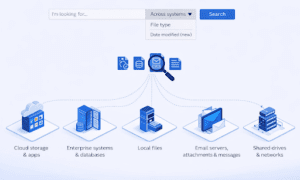Welcome to the world of search software technology, where algorithms work tirelessly behind the scenes to provide us with accurate and relevant information at our fingertips. Have you ever wondered how search engines like Google or Bing manage to deliver millions of results in a matter of seconds? In this blog post, we will delve deep into the inner workings of these intelligent systems, demystifying their complex processes and shedding light on the incredible technology that powers them.
Introduction to Search Software Technology
Search software technology is a vital aspect of our daily lives, powering the search engines that we use to find information on the internet. From Google and Bing to specialized search engines like Amazon or YouTube, search software technology plays a crucial role in bringing us the most relevant results for our queries. In this section, we will provide an overview of what search software technology is and how it works.
What is Search Software Technology?
Search software technology is a complex system that allows users to search for and retrieve information from a vast collection of data. This technology has become an integral part of our daily lives as it powers search engines, e-commerce platforms, and other web-based applications.
At its core, search software technology utilizes algorithms and programs to scan through large databases or indexes to find relevant information based on a user’s query. These databases contain information about web pages, documents, images, videos, and other types of content found on the internet.
The process starts with a user typing in a keyword or phrase into the search bar. The search software then uses this input as a query to look for matching results in its database. This is where the algorithm comes into play; it analyzes the query and determines which results are most relevant based on various factors such as keywords used, website authority, and user intent.
One essential aspect of search software technology is its ability to constantly learn from user behavior and improve its performance over time. For example, if a user clicks on one result but quickly goes back to the search page without spending much time on it, the algorithm will register this as an unsuccessful match. In contrast, if a user spends more time on a particular result and even revisits it multiple times in subsequent searches for similar queries, the algorithm will recognize this as a successful match.
Evolution and Development of Search Software Technology
The evolution and development of search software technology has been a fascinating journey, driven by the constant need for efficient and accurate information retrieval. From its early beginnings in the 1960s with simple keyword matching algorithms to modern-day sophisticated natural language processing techniques, search software technology has come a long way.
In the early days of computing, search functionality was limited to basic keyword searches that matched user input with pre-indexed data. This approach was fast but lacked accuracy and relevance. As the demand for more precise results grew, developers began experimenting with new techniques such as inverted indexing, which enabled faster retrieval of data based on keywords.
The invention of web search engines in the 1990s marked a significant milestone in the evolution of search software technology. With the growth of the internet, there was an exponential increase in information available online, making it challenging to find relevant results quickly. Search engines like Yahoo and Google revolutionized this process by using complex algorithms that considered factors such as website popularity and inbound links to rank pages’ relevance.
As users became more accustomed to using search engines for their queries, expectations for precise and relevant results also increased. This led to further advancements in search software technology, such as semantic searching, which takes into account contextual meaning rather than just keywords. This approach allows users to receive more accurate results even when their query does not exactly match indexed content.
With advancements in machine learning and artificial intelligence (AI), modern-day search software can understand user intent better than ever before. AI-powered systems can analyze user behavior, preferences, and past searches to provide personalized results tailored to each individual’s needs. This has greatly improved the overall search experience for users.
The development of voice search technology has also been a significant advancement in recent years. With the rise of virtual assistants like Amazon’s Alexa and Apple’s Siri, users can now perform searches using their voices, making the process even more convenient and intuitive.
The Impact of Search Software Technology on Our Daily Lives
Search software technology has become an integral part of our daily lives, whether we realize it or not. From finding information on the internet to organizing our emails and documents, search software has revolutionized the way we interact with information. In this section, we will explore the various ways in which search software technology impacts our day-to-day activities.
1. Access to Information:
One of the most significant impacts of search software technology is its ability to provide instant access to vast amounts of information. Gone are the days when we had to spend hours searching through physical libraries or flipping through pages of books to find what we were looking for. With just a few clicks, search engines like Google can retrieve millions of results in a matter of seconds, making it easier for us to find relevant information quickly.
2. Simplifying Communication:
Emails have become an essential means of communication in both personal and professional settings. However, with the sheer volume of emails that people receive every day, managing them can be overwhelming without proper tools. This is where email search software comes into play, allowing users to easily search for specific emails by keywords or sender name, saving time and increasing productivity.
3. Personalization:
In recent years, search software technology has evolved from providing generic results based on keyword searches to offering personalized recommendations based on user behavior and preferences. This level of personalization makes it easier for users to find exactly what they are looking for without having to sift through irrelevant content.
4. E-commerce:
The rise of e-commerce has also been heavily influenced by search software technology. Online shopping platforms use advanced search algorithms to understand user intent and provide relevant product recommendations. This not only makes the shopping experience more convenient for users but also helps businesses increase sales by showcasing products that align with their customers’ interests.
5. Navigation:
GPS navigation systems rely heavily on search software technology to provide real-time directions and suggest the fastest routes based on live traffic data. This has made it easier for people to navigate unfamiliar areas and reach their destinations efficiently, saving time and reducing frustration.
6. Social media:
Search software technology is also a crucial component of social media platforms, allowing users to search for specific content or people within the platform. This feature has made it easier for users to connect with like-minded individuals, find relevant information, and discover new content.
7. Artificial Intelligence:
With advancements in artificial intelligence (AI), search software technology has become even more sophisticated. AI-powered chatbots can interpret natural language queries and provide accurate responses, making it easier for users to access information without having to type out specific keywords.
Conclusion
Search software technology has become an essential tool in our daily lives, simplifying tasks and providing us with instant access to information. As technology continues to evolve, we can expect search software to become even more advanced and integrated into various aspects of our lives.



































